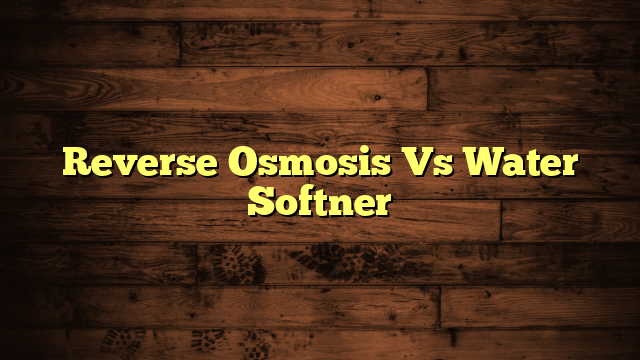How Does a Water Softner Work?
Have you ever wondered why your water feels different when you wash your hands or do laundry? That's likely due to hard water, which contains minerals like calcium and magnesium. A water softener can change that by using an ion exchange process to remove these minerals. As you consider how this system operates, you might find it intriguing to learn about the specific components involved and the various types available. Understanding these elements will help you grasp not just how a water softener works, but also the broader benefits it can provide for your home.
Key Takeaways
- A water softener uses the ion exchange process to replace calcium and magnesium ions in hard water with sodium ions.
- Hard water flows through a resin bed filled with sodium-coated beads, allowing ion exchange to occur.
- The resin beads become saturated with calcium and magnesium and require regeneration to maintain efficiency.
- Regeneration involves flushing the beads with a concentrated salt solution from the brine tank to replenish sodium.
- The control valve regulates water flow and timing for both softening and regeneration cycles, ensuring effective operation.
Understanding Hard Water
Hard water, often found in many households, contains high levels of minerals like calcium and magnesium. When water seeps through the ground, it picks up these minerals, leading to the formation of calcium carbonate and magnesium ions. This mineral-rich water may not seem harmful at first, but it can cause various issues in your home.
You might notice that hard water leaves behind unsightly mineral deposits on your faucets and showerheads. These deposits are primarily calcium carbonate, which can build up over time, affecting water flow and appliance efficiency.
Furthermore, hard water can reduce the effectiveness of soaps and detergents. You may find that your laundry doesn't feel as clean or your dishes come out cloudy after washing.
Moreover, using hard water for bathing can lead to dry skin and dull hair, as the minerals can strip away natural oils.
Understanding the implications of hard water is essential for maintaining your home's plumbing system and ensuring your personal care routines remain effective. By recognizing these challenges, you can start to contemplate solutions that address the issues associated with hard water in your home.
What Is a Water Softener?
A water softener is a device designed to reduce the hardness of water by removing calcium and magnesium ions. This process improves water quality, making it gentler on your skin, appliances, and plumbing.
By integrating filtration systems, water softeners not only soften water but also enhance its overall usability.
When you think of a water softener, picture it doing the following:
- Transforming hard water into soft water that feels silky on your skin during a shower.
- Protecting your appliances by preventing mineral buildup that can lead to costly repairs.
- Extending the life of your plumbing, reducing the risk of clogs and corrosion caused by hard water.
- Improving the effectiveness of soaps and detergents, allowing them to lather better and clean more efficiently.
These benefits collectively showcase how a water softener can elevate your home's water quality.
You'll notice a remarkable difference in everything, from laundry freshness to the longevity of your fixtures.
If you're dealing with hard water issues, investing in a water softener could be one of the best decisions for your household.
The Ion Exchange Process
The ion exchange process is the heart of how water softeners function, effectively swapping harmful calcium and magnesium ions in your hard water for sodium ions.
When your hard water flows into the softener, it passes through a resin bed filled with tiny beads coated in sodium. These beads attract and hold onto the calcium and magnesium ions, releasing sodium ions into the water instead.
As the hard water moves through the resin, the ion exchange occurs: calcium and magnesium ions cling to the resin beads, and sodium ions are released into the water. This exchange continues until the resin beads become saturated with calcium and magnesium, at which point they can't hold any more hard minerals.
To maintain efficiency, you'll need to regenerate the resin. This is done by flushing the beads with a concentrated salt solution, which replenishes the sodium ions and washes away the accumulated calcium and magnesium.
Understanding this ion exchange mechanism is essential for appreciating how a water softener not only improves your water quality but also protects your plumbing and appliances from the damaging effects of hard water.
Components of a Water Softener
When you think about a water softener, it's important to understand its key components.
The resin beads are essential for the softening process, while the brine tank replenishes them, ensuring they continue to work efficiently.
Plus, the control valve plays a significant role in regulating the flow of water, making it all come together seamlessly.
Resin Beads Functionality
Resin beads play an indispensable role in the water softening process, serving as the heart of a water softener. These tiny, spherical components are responsible for the ion exchange that removes hard minerals like calcium and magnesium from your water. Different resin types can affect efficiency and longevity, so knowing the right kind for your home is essential.
Once the beads are saturated with hard minerals, they need to be regenerated to continue their work effectively. This is where bead regeneration comes into play, restoring the beads' ability to soften water.
Here's how it works:
- Ion Exchange: Hard water passes through the resin beads, and the beads attract and hold onto the hard minerals.
- Saturation: Over time, the beads become saturated and lose their effectiveness.
- Regeneration Cycle: A brine solution flows through the beads, replacing the hard minerals with sodium ions.
- Rinse and Reset: After regeneration, the beads are rinsed, ready to soften water again.
Understanding how resin beads function helps you appreciate their important role in keeping your water soft and your appliances safe from scale buildup.
Brine Tank Role
Playing an important role in the water softening process, the brine tank is essential for regenerating the resin beads. When your water softener reaches the end of its cycle, it needs to refresh the resin beads that have become saturated with hard minerals like calcium and magnesium. This is where the brine tank comes into play.
Inside the brine tank, you'll find a concentrated salt solution, typically made from sodium chloride. When it's time for regeneration, the system draws this salt solution into the resin tank, where it interacts with the resin beads. The high concentration of sodium displaces the hard minerals that cling to the beads, effectively flushing them away and recharging the resin for another cycle of softening.
You should regularly check the brine tank to verify it has enough salt for this process. If the salt levels are low, the regeneration won't be effective, leading to hard water issues.
Understanding the brine tank's role helps you maintain your water softener's efficiency, ensuring you enjoy soft water throughout your home. Keeping an eye on this component ensures smooth operation and prolongs the life of your water softener system.
Control Valve Mechanism
The control valve mechanism is an essential component of a water softener, ensuring the system operates efficiently and effectively. This mechanism controls the flow of water through the softener, determining how and when the water is treated.
Understanding the different control valve types can help you appreciate how they function in your system.
Here are four key aspects of control valve operation:
- Regulation: The valve regulates water flow, allowing for smooth shifts between softening and regeneration cycles.
- Timing: It features timers or sensors that monitor water usage, initiating regeneration when necessary to maintain peak performance.
- Bypass Capability: Many control valves include a bypass option, letting you divert water when maintenance is needed without interrupting your home's water supply.
- User Interface: A digital or manual interface allows you to customize settings according to your household's water consumption needs.
Types of Water Softeners
When it comes to choosing a water softener, you've got several types to evaluate, each designed to tackle hard water differently.
Salt-based systems are the most common, using ion exchange to remove calcium and magnesium ions. If you're looking for something less traditional, consider magnetic softeners, which claim to alter the properties of hard minerals without chemicals.
For those who want thorough purification, reverse osmosis systems can be a good option; they filter out many impurities, including hardness minerals.
If you have high water usage, dual tank systems can be beneficial, ensuring a continuous supply of soft water without interruption.
Portable softeners are ideal for RVs or small spaces, allowing you to soften water on the go. Whole house systems provide a complete solution, treating all water entering your home.
On the other hand, point of use systems focus on specific faucets or appliances, giving you targeted treatment where you need it most.
Each type has its own advantages, so it's crucial to assess your needs before making a decision. Understanding these options will help you choose the best water softener for your home.
Benefits of Water Softening
When you use a water softener, you'll notice several key benefits that enhance your daily life.
It reduces scale buildup in your pipes and appliances, which can save you money on repairs and replacements.
Plus, you'll find that soap works better, leaving your skin and hair feeling softer and more hydrated.
Reduced Scale Buildup
Many homeowners notice a significant reduction in scale buildup after installing a water softener. This improvement not only enhances your home's aesthetics but also contributes to plumbing longevity. By effectively preventing scale, you can prolong the life of your pipes and appliances.
Here are some benefits you can expect:
- Cleaner Fixtures: You'll see fewer spots and streaks on your faucets and showerheads.
- Extended Appliance Life: Your water heater and dishwasher will function more efficiently, reducing the risk of costly repairs.
- Reduced Energy Bills: Softened water allows appliances to work more efficiently, saving you money on energy costs.
- Easier Maintenance: You won't need to scrub as often, making cleaning a breeze.
With scale prevention at the forefront, the investment in a water softener pays off in various ways. You'll enjoy a more comfortable home environment, and your plumbing will remain in top condition.
Embrace the benefits of reduced scale buildup, and you'll see how a water softener can transform your everyday experience, making life a little easier and more enjoyable.
Improved Soap Efficiency
One of the standout benefits of water softening is improved soap efficiency. When you soften your water, you greatly enhance soap lathering efficiency. Hard water contains minerals like calcium and magnesium that hinder soap from lathering properly. This means you often need to use more soap or detergent to achieve the desired results.
With softened water, you'll find that a smaller amount of soap produces rich lather, making your cleaning tasks easier and more effective.
Moreover, the detergent effectiveness also increases. Soft water allows detergents to work more efficiently, breaking down dirt and grime more effectively.
You'll notice that your laundry comes out cleaner, your dishes sparkle, and your surfaces shine without the residue often left behind by hard water. This not only saves you money on cleaning products but also reduces waste.
Softer Skin and Hair
Softened water not only enhances cleaning efficiency but also benefits your skin and hair. When you switch to softened water, you'll notice a remarkable difference in how your skin feels and how your hair shines.
Here are four key benefits you can expect:
- Increased Skin Hydration: Softened water helps maintain your skin's moisture, reducing dryness and irritation.
- Gentler Cleansing: With fewer minerals, your soap can do its job better, leaving your skin feeling smooth and refreshed.
- Enhanced Hair Shine: Softened water minimizes residue from hard water, allowing your hair to reflect light more beautifully, giving it that healthy shine.
- Less Frizz and Tangles: The absence of harsh minerals makes your hair easier to manage, leading to fewer tangles and a sleeker appearance.
Maintenance and Care
Maintaining a water softener is fundamental for guaranteeing its efficiency and longevity. To start, keep an eye on the salt dosage; it's essential to maintain the recommended levels for peak performance.
You should also establish a maintenance schedule that includes regular efficiency checks. This way, you can catch any potential issues before they escalate.
Every few years, you'll need to evaluate resin replacement. This step is critical for keeping your system working effectively.
When it comes to cleaning procedures, be sure to follow the guidelines outlined in your user manual. This guarantees you're using the right products and techniques, which can help prolong your unit's life.
If you encounter problems, troubleshooting tips can be a lifesaver. Check for common issues like clogs or low salt levels, which can impact performance.
Don't hesitate to consult the user manual for specific instructions tailored to your model.
Common Myths About Water Softeners
When it comes to water softeners, many misconceptions can cloud your understanding of how they really work.
Let's clarify some common softener myths that you might encounter:
- Water softeners remove all minerals – While they do reduce hardness, beneficial minerals like calcium and magnesium aren't entirely removed; they're just exchanged for sodium.
- Softened water is unhealthy – This myth stems from fear of sodium. In reality, the amount added is minimal and usually not a concern for most people.
- You don't need to maintain a water softener – Regular maintenance is essential! Skipping this can lead to inefficiency and costly repairs.
- Softened water is the same as distilled water – Distilled water is purified and free of minerals entirely, while softened water still contains some minerals but at lower levels.
Frequently Asked Questions
How Long Does a Water Softener Last?
A water softener's lifespan typically ranges from 10 to 15 years, depending on maintenance requirements. Regularly checking the salt levels and cleaning components can help you maximize its longevity and efficiency throughout its service life.
Can I Install a Water Softener Myself?
Around 70% of homeowners opt for DIY installation of water softeners. You'll need basic tools like wrenches and screwdrivers. If you're handy, you can successfully tackle this project and save on installation costs!
Do Water Softeners Affect Drinking Water Quality?
Water softeners can improve your drinking water quality by reducing hardness, which minimizes scale buildup in pipes and appliances. However, they may add sodium, so check your system if you're concerned about sodium intake.
Are Water Softeners Environmentally Friendly?
Water softeners can be environmentally friendly if you choose sustainable systems and salt alternatives. By reducing sodium discharge and using eco-friendly options, you're helping to minimize the impact on your local water supply and ecosystem.
How Much Does a Water Softener Cost?
When considering water softener prices, you'll find units ranging from $400 to $2,500. Don't forget installation costs, which can add another $200 to $500, depending on your home's plumbing and the complexity of the setup.
Conclusion
In summary, a water softener is a smart investment for improving your water quality and protecting your home's plumbing. You might worry about the added sodium in softened water, but the amount is minimal and generally safe for most. Plus, the benefits of soft water—like cleaner dishes, softer skin, and longer-lasting appliances—far outweigh this concern. So, don't hesitate to embrace the advantages of softened water; your home and health will thank you!







